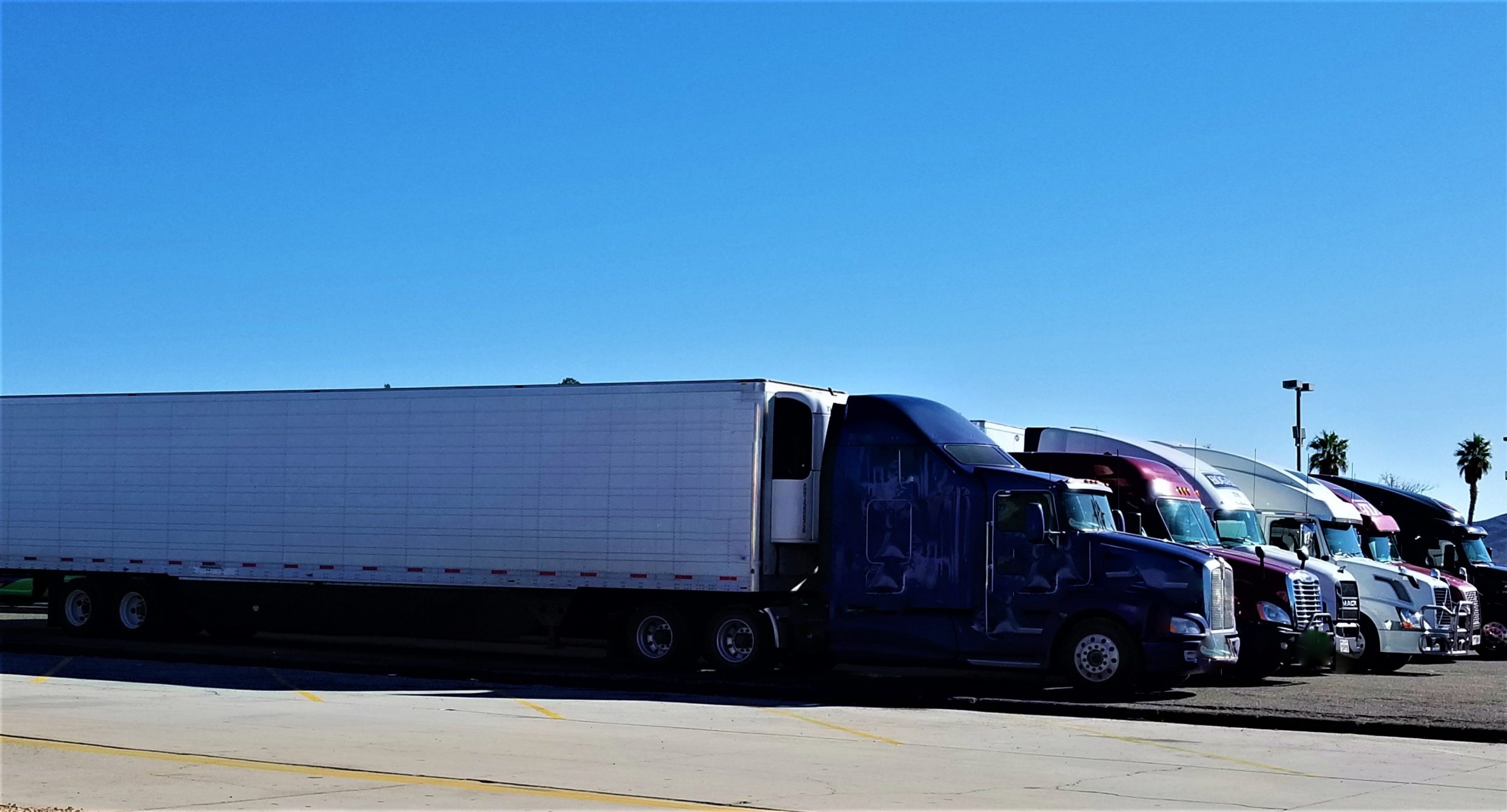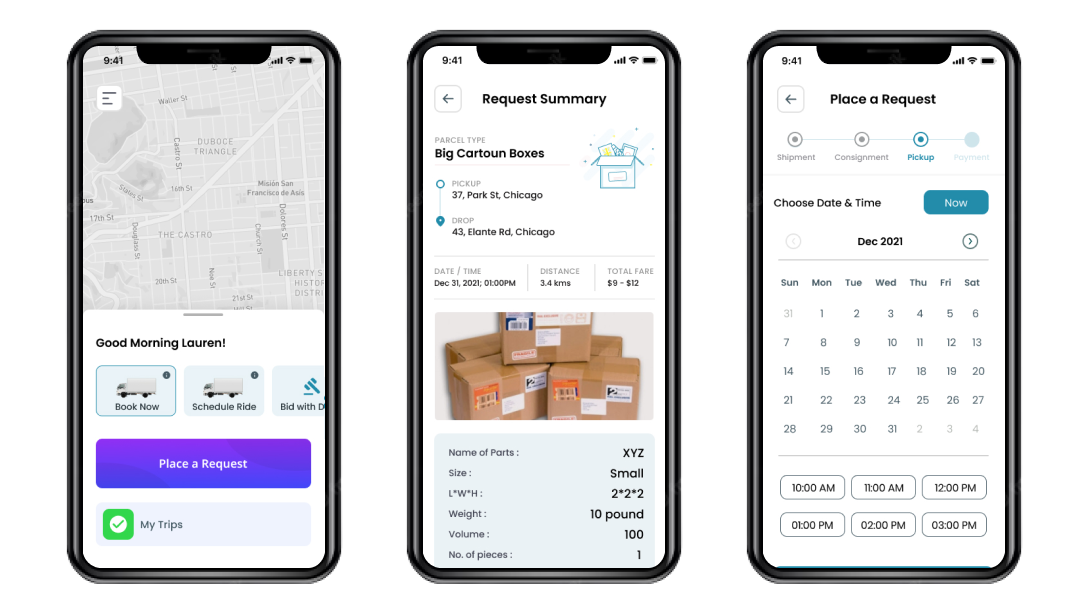
How Transport Management Software in the UK Speeds Up Delivery
Timely deliveries are crucial in the logistics and delivery industry as they directly impact customer satisfaction, operational efficiency, and overall business success. Meeting delivery deadlines ensures customer trust and loyalty, enhances brand reputation, and reduces the risk of financial penalties for delayed shipments. Transport management software UK (TMS) has become pivotal in achieving these goals. TMS integrates various logistical functions, such as route planning, vehicle tracking, and inventory management, into a unified platform.
According to a report by Statista, the adoption of TMS in the UK logistics sector has steadily risen, with a projected market size growth reflecting its growing significance in optimizing operations and improving delivery performance. This software enables companies to streamline workflows, minimize transportation costs, and respond swiftly to changing market demands, thus playing a crucial role in the competitive logistics landscape of the UK.

What is a Transport Management System?
Transport Management Software (TMS) is a comprehensive solution used in logistics and supply chain management to optimize and manage transportation operations. The best transport management software UK encompasses various functions aimed at improving efficiency, reducing costs, and enhancing customer satisfaction. Key features of TMS include route optimization, real-time tracking, automated dispatching, and load planning and optimization.

Optimized routes
Route optimization is a critical function of TMS that utilizes algorithms to determine the most efficient paths for vehicles based on factors such as distance, traffic conditions, and delivery schedules. By minimizing travel time and fuel consumption, TMS helps companies achieve cost savings and improve delivery reliability. It also considers constraints like vehicle capacity and delivery priorities, ensuring that routes are tailored to maximize efficiency while meeting operational requirements.
Real-time tracking
TMS provides real-time tracking capabilities through integration with GPS and telematics systems. This feature allows logistics managers to monitor the exact location of vehicles, track delivery progress, and respond promptly to any deviations or delays. Real-time tracking enhances visibility across the supply chain, enabling proactive decision-making and effective communication with customers regarding shipment status and estimated arrival times.
Automated dispatching
Automated dispatching within TMS automates the assignment of tasks to drivers based on predefined criteria such as proximity, availability, and skill set. By eliminating manual processes of transportation dispatch and optimizing resource allocation, automated dispatching reduces human error, speeds up response times, and enhances operational efficiency. It ensures that assignments are distributed efficiently, improving overall fleet productivity and service levels.

Load planning and optimization
Load planning and optimization features in TMS optimize the allocation of cargo and resources within vehicles. By considering factors like weight distribution, cargo specifications, and vehicle capacity, TMS helps maximize load utilization and minimize empty miles. This not only reduces transportation costs but also supports sustainability initiatives by minimizing carbon emissions per trip. Additionally, load planning features enable logistics managers to balance workload across vehicles and ensure compliance with safety regulations and delivery timelines.
The Challenges of Timely Deliveries in the UK
Timely deliveries in the UK face several challenges, including congested urban areas and logistical complexities. Urban congestion, particularly in cities like London, slows down transport and increases delivery times. Moreover, rising customer expectations for faster delivery adds pressure on logistics companies to optimize their operations, often requiring significant investment in technology and infrastructure. Let’s have a quick look at the key challenges of timely deliveries in the UK:
Traffic congestion
Traffic congestion poses a significant challenge in the UK logistics sector, especially in urban areas like London, Manchester, and Birmingham. Congested roads and frequent traffic jams lead to delays in delivery schedules and increased travel times for trucks. This not only affects operational efficiency but also adds to fuel costs and carbon emissions.
Logistics companies often need to factor in extra time for deliveries to account for potential delays caused by traffic congestion. Efficient route planning and the use of real-time traffic updates through Transport Management Software (TMS) can mitigate these challenges, optimizing routes and minimizing the impact on delivery times.
Regulatory compliance
Compliance with regulatory requirements, including safety standards, vehicle emissions, and driving regulations, is crucial for logistics companies operating in the UK. Failure to comply with regulations can result in fines, penalties, or even suspension of operations.
Navigating through varying regulations across different regions adds complexity to logistics operations, potentially affecting delivery schedules as companies ensure adherence to legal requirements. Robust compliance management systems and regular updates on regulatory changes are essential to maintain operational continuity and ensure timely deliveries without interruptions due to compliance issues.
Rising fuel costs
Fluctuating fuel prices are a constant concern for logistics companies in the UK, impacting overall operational costs and profitability. Higher fuel costs directly translate into increased transportation expenses, affecting delivery economics and profit margins.
Logistics providers often adopt fuel-efficient vehicles and implement route optimization strategies through TMS to minimize fuel consumption and mitigate the impact of rising fuel costs on delivery times. However, unexpected spikes in fuel prices can still lead to budgetary constraints and adjustments in delivery schedules to manage cost pressures effectively.
Last-mile delivery issues
The last mile of delivery, which involves transporting goods from distribution centers to the final destination, presents unique challenges in urban areas characterized by dense populations and restricted access for large vehicles. Issues such as parking restrictions, delivery time windows, and difficulty in locating recipients contribute to delays in last-mile deliveries.

These challenges are exacerbated during peak periods, such as holidays or promotional events, when demand for deliveries surges. Innovative solutions, including alternative delivery methods like drones or electric vehicles, and effective coordination between logistics providers and local authorities, are crucial to improving last-mile delivery efficiency and meeting customer expectations for timely deliveries.
How Transportation Management System Addresses Delivery Time Challenges
Transport Management Software (TMS) in the UK plays a pivotal role in improving delivery times within the UK logistics sector through several key functionalities.
Route Optimization
TMS optimizes delivery routes by utilizing advanced algorithms that consider factors such as traffic conditions, delivery priorities, and vehicle capacities. This optimization reduces travel time and lowers fuel consumption by ensuring that trucks take the most efficient paths.
Real-Time Tracking
Real-time tracking capabilities further enhance efficiency by allowing logistics managers to monitor delivery progress continuously. This feature enables immediate response to delays, facilitating quick decision-making and rerouting options to minimize disruptions and maintain delivery schedules effectively.
Automated Dispatching
Automation in dispatching vehicles is another critical aspect facilitated by TMS, streamlining operations by automatically assigning tasks based on predefined criteria like proximity and availability. This automation reduces idle time and improves delivery schedules by optimizing resource allocation and minimizing unnecessary downtime.

Load Planning and Optimization
Efficient load planning and optimization supported by TMS also contribute significantly to reducing delivery times. By maximizing the use of vehicle capacity and balancing loads effectively, logistics companies can achieve faster turnaround times and ensure timely deliveries.
Additional Benefits of Using TMS for Speeding Up Deliveries
A. Improved customer satisfaction
TMS ensures timely deliveries by optimizing routes and providing real-time tracking, which enhances reliability and meets customer expectations consistently. Satisfied customers are more likely to repeat business and recommend the logistics provider to others, boosting overall customer retention and loyalty.
B. Cost savings
TMS contributes to cost savings through reduced fuel consumption and optimized routes. By minimizing unnecessary miles and fuel-intensive routes, logistics companies can lower transportation costs significantly. This cost efficiency translates into improved profitability and competitive pricing strategies in the market.
C. Enhanced operational efficiency and productivity
TMS streamlines operations by automating processes like route planning, dispatching, and load optimization. This automation reduces manual workload, eliminates errors, and speeds up decision-making processes. As a result, logistics teams can handle more deliveries efficiently, increase productivity, and achieve higher throughput without compromising on service quality.
Improve Your Delivery Time in the UK, Implement TMS in Your Business
Choosing the best Transport Management Software in the UK for delivery businesses involves several critical steps to ensure seamless implementation and maximize operational efficiency. Begin by assessing specific business needs and evaluating TMS features like route optimization, real-time tracking, and integration capabilities with existing systems. Research vendor reputation and support services to ensure reliable technical assistance and responsive customer service. Develop a comprehensive implementation plan, including staff training, to facilitate smooth adoption across the organization.

Maximize the benefits of transport management software UK by monitoring performance metrics, updating software capabilities, and fostering collaboration between logistics teams and IT departments. Looking ahead, TMS will continue to evolve with advancements in AI and IoT, enhancing route optimization, decision-making, and supply chain visibility to meet growing demands for faster, more efficient deliveries in the logistics industry.




